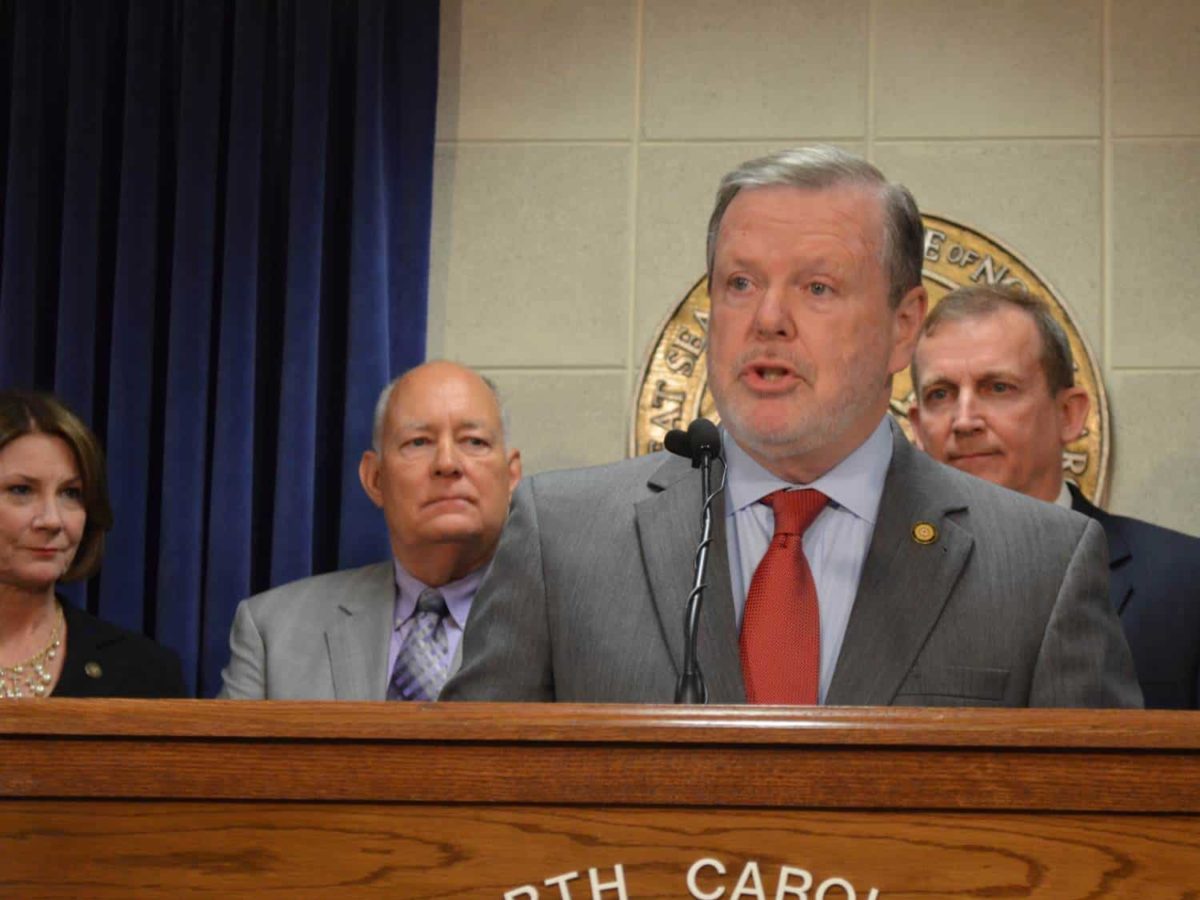
Share this story
- Senate Bill 692 would provide an overhaul to governance within the North Carolina community college system if it becomes law.
- Under SB692, the State Board of Community Colleges would still select the system president, but their choice would be subject to confirmation by the General Assembly, shifting the current governance structure.
|
|
Senate Bill 692 would provide an overhaul to governance within the community college system if it becomes law.
Filed last week, SB 692 is only at the beginning of the legislative process. Senators Amy Galey, R-Alamance, Todd Johnson, R-Cabarrus, and Tom McInnis, R-Cumberland, are the primary sponsors. Senate Majority Leader Phil Berger, R-Guilford, and Senate Deputy President Pro Tem Ralph Hise, R-Alleghany, are among the other sponsors of the legislation.
See this article for context about North Carolina’s community college governance structure, and this article for how that compares to the models used in other states.
Under SB 692, the State Board of Community Colleges would still select the system president, but their choice would be subject to confirmation by the General Assembly. This move is on the heels of an amendment filed by Sen. McInnis to HB 149 last week that would require the same selection process.
The system president would gain new powers under the legislation, including increased budget authority and the opportunity to provide reports to the General Assembly without approval of the Board. And while college boards of trustees would still manage the process for selecting their local college president, the system president would make a formal recommendation either approving or denying the local board’s choice to the State Board of Community Colleges. Currently, the Board approves the hires without the system president having a formal role.
The system president would also be able to terminate the contract of individual college presidents for noncompliance with their contract terms — and they will gain the authority to recommend removal of individual trustees at the local college level as well.
“The president of the Community Colleges System needs to be able to run the system,” Johnson said, according to a release from the Senate Republican press office. “The State Board will be able to focus on the policy decisions it should make instead of being tied up by tasks best performed by the System President.”
The makeup of the State Board of Community Colleges appointments would also shift. At present, the governor, House, and Senate all make selections to the Board. If SB 692 becomes law, the governor would lose appointment power. At present, the Board also has a student representative, which would no longer be the case after July 1, 2023, when the Board would shrink to 21 members.
Current Board members would not be removed from their seats, but a new appointment system would take effect moving forward. Under SB 692, the Senate and the House would each have nine appointments.
The lieutenant governor, treasurer, and secretary of labor would remain ex-officio members until 2027, when the Board will shrink to 18 members appointed entirely by the House and Senate.
Local boards of trustees would also be reshaped moving forward. At present, colleges have varied appointment processes with the governor, legislature, county commissioners, and local boards of education each making appointments depending on the college.
SB 692 would create a single process. Every college would have 12 members on their board of trustees, with four members appointed by the House, another four appointed by the Senate, and the remainder appointed by the county commissioners in the county where the college is headquartered.
“It is imperative that local officials play a role in determining the future of their community college,” McInnis said in the Senate Republicans’ press release. “By having the county commissioners and the General Assembly members appoint the boards, we will be able to have boards that best represent the needs of our residents, students, and employers.”
The Senate is on break this week. When they return, we will follow the next steps for this legislation. The bill was referred to the Senate Higher Education committee yesterday.
You can review the draft of the bill below.
As we move forward, here are some questions that have been raised by audience members to date:
- Many colleges have campuses in multiple counties. If this bill became law, local boards of trustees would be appointed by the House, Senate, and the county commissioners in the home county of the college. Some rural colleges already struggle to gain support from counties where there is not a main campus. If they no longer have Board representation, they may not get enough funding to operate satellite centers, which could prevent them from serving our communities. What happens then?
- The Senate Republican release outlines the following regarding the system president’s role with local college presidents moving forward: “For selecting local community college presidents, the bill creates mandatory contract terms that boards of trustees must follow during the election process. These new standards would allow the System President to review each contract or contract renewal, make a recommendation for approval or denial of each contract, dismiss the president if cause for dismissal or termination is met, and make a recommendation on approval or denial of any person elected and submitted by the local board.” Given the nature of local campuses, the key performance indicators for the role might vary by community. How much flexibility will these contract terms provide moving forward should this bill become law?
- What process could be created to include student voice moving forward given the removal of the student representative from the Board?
I welcome your thoughts, observations, and questions by email at nhahn at ednc dot org.
Recommended reading




